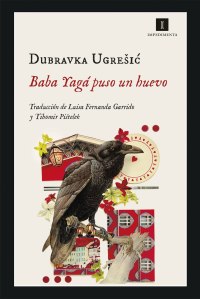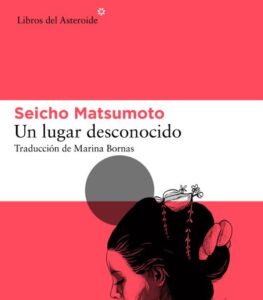
Review of the book «Baba Yaga laid an egg» by Dubravka Ugrešić.
“Baba Yagá Laid an Egg” is a novel by Croatian author Dubravka Ugrešić, first published in 2007. The novel is an exploration of old age, death and female identity, with a strong presence of mythological and folkloric elements of Eastern Europe.
Baba Yagá Laid an Egg, by Dubravka Ugrešić, is a novel that explores female old age from different perspectives, mixing myth, reality and fiction. The Croatian author, exiled in Holland since the Balkan War, uses the figure of Baba Yaga, the Slavic witch who lives in a house with chicken legs and devours children, to create a narrative triptych that questions the stereotypes and roles of women. women in history and literature.
The first part of the novel is titled “At the Hotel,” and tells the journey of Aba, a writer who returns to Bulgaria to fulfill her dying mother’s wish to visit the places of her childhood. Aba stays in a hotel with her mother and her friend Beba, two elderly women who seem to have lost interest in life. There they meet other older women looking to rejuvenate themselves in a spa specialized in longevity treatments. Aba observes with irony and melancholy the contrast between the past and the present, between youth and old age, between the East and the West.
The second part is called “At Home”, and tells the story of Pupa, an old woman who lives alone in Zagreb and who impatiently awaits her own death. Pupa has a daughter named Kukla, who works as a university professor and is married to an unfaithful man. Pupa also has a granddaughter named Tanja, who is a rebellious young woman and a drug addict. Pupa receives a visit from a nurse named Malásha, who turns out to be a witch in disguise. Malásha offers Pupa a magical egg that will give a new meaning to her existence.
The third part is titled “In the book”, and is an essay about Baba Yaga written by Aba, the writer of the first part. Aba analyzes the different versions and meanings of the Baba Yaga myth throughout history and Slavic culture. Aba relates Baba Yagá with other female figures such as Medusa, Echo or Medea, and reflects on the role of women as creators and storytellers. Aba also reveals her own connection to Baba Yaga and the egg that changed her life.
Baba Yagá Laid an Egg is an original and intelligent novel that combines humor, criticism and fantasy to offer a lucid and profound vision of the condition of women in the contemporary world. Dubravka Ugrešić demonstrates her literary mastery by creating a polyphonic and polysemic text, inviting the reader to discover the multiple layers and resonances of Baba Yagá, a witch who not only laid an egg, but also many stories about her.
The novel’s plot follows four older women, each at different stages of life. The first, called “Baba Yagá”, is a character from Slavic mythology who is considered a sinister being, but in the novel, she is an old woman who lives in a nursing home. The second, Beba, is an aging writer who is trying to write a work about Baba Yaga. The third, Marija, is a woman who has lost her mother and is trying to find her place in the world. Finally, Zaga, an elderly woman who is recently widowed and is trying to deal with her loss and her own mortality.
Throughout the novel, Ugrešić explores the relationship between these women and their place in society. The plot of the novel moves through different time periods and places, and is intertwined with stories from Slavic mythology and popular culture.
Ugrešić’s writing is evocative and poetic, with prose that combines satire and deep reflection. The novel is also very funny, with a sense of humor that is often found in unexpected situations.
What makes “Baba Yagá Laid an Egg” so special is the way Ugrešić uses mythological and folkloric elements to explore more universal themes. Exploring old age, mortality, and female identity, Ugrešić offers a reflection on what it means to be human and how we confront our own mortality.
The novel also addresses broader themes, such as violence against women and the way women are represented in society. Through the figure of Baba Yagá, Ugrešić challenges stereotypical representations of older women and shows us the complexity and depth of these women.
In summary, “Baba Yagá laid an egg” is a fascinating and moving novel that offers a deep reflection on old age, mortality and female identity. The novel is accessible and appealing to a wide range of readers, with an intriguing plot and complex, well-developed characters. I would recommend this novel to anyone interested in contemporary literature and deep reflection on the central issues of our current society.
Source: https://algunoslibrosbuenos.com/baba-yaga-puso-un-huevo


